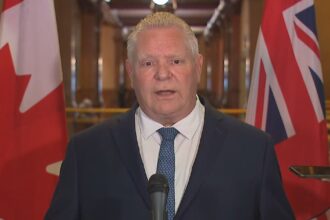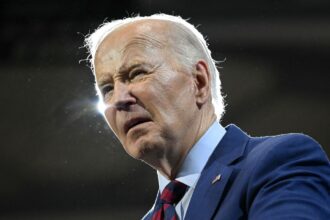The diplomatic corridors of the G7 finance ministers’ summit have grown noticeably tense as officials work to present a unified front despite deepening concerns over American trade policies. Behind closed doors in Toronto this week, finance leaders from the world’s advanced economies are grappling with a fundamental challenge: how to address mounting economic protectionism without publicly confronting their most powerful member.
“We’re walking a tightrope,” confided one European official who requested anonymity to discuss the sensitive deliberations. “There’s a collective understanding that public disagreements would only exacerbate market uncertainty, but the concerns about American economic nationalism are very real.”
The carefully choreographed summit comes amid a backdrop of controversial tariff increases and industrial subsidies implemented by Washington that have stirred anxiety among traditional allies. Several delegations, particularly from Europe and Japan, have expressed private frustration over policies they view as undermining the rules-based trading system the G7 has historically championed.
German Finance Minister Christian Lindner, while avoiding direct criticism, emphasized the importance of open markets in his opening remarks. “Our collective prosperity depends on fair competition and predictable trade relationships,” Lindner stated, in what many observers interpreted as a veiled reference to current tensions.
Canadian host and Finance Minister Chrystia Freeland has assumed the delicate role of mediator, working to craft a communiqué that acknowledges trade concerns without singling out the United States. Sources close to the negotiations revealed to CO24 Business that earlier drafts underwent significant revisions to soften language around “market distortions” and “unfair competition.”
The economic stakes could not be higher. A recent analysis from the International Monetary Fund, discussed during yesterday’s sessions, projects that unchecked trade fragmentation could reduce global GDP by up to 7% over the next decade—roughly equivalent to the economies of Japan and Germany combined.
“What we’re seeing is an unprecedented recalibration of global economic relationships,” explained Dr. Elisa Monteiro, senior economist at the Royal Bank of Canada. “The G7 is struggling to maintain its traditional role as the guardian of free trade while accommodating new political realities in member countries.”
Japanese Finance Minister Shunichi Suzuki has emerged as a key figure advocating for stronger protections against economic coercion, reflecting Tokyo’s growing concerns about regional security and supply chain resilience in the Indo-Pacific. These discussions have found common ground with European concerns about economic sovereignty without directly challenging American positions.
Market reactions to the summit have been notably cautious. The Canadian dollar has fluctuated within a narrow range, while European bond markets have shown mild volatility as investors await clarity on how the world’s most influential economic powers will navigate these tensions.
Treasury Secretary Janet Yellen has privately acknowledged allies’ concerns while defending American policies as necessary responses to what Washington perceives as unfair practices by non-G7 competitors, particularly China. This framing has provided a narrow pathway for agreement on the need for supply chain diversification, though significant differences remain on implementation approaches.
As the ministerial meetings conclude tomorrow, attention will focus on whether the final communiqué can bridge these dividing lines with substantive commitments or merely paper over fundamental disagreements with diplomatic language. The outcome will signal whether the G7 can still function as an effective economic coordination forum in an increasingly fractured global landscape.
What remains to be seen is whether these finance ministers can translate their diplomatic caution into meaningful economic cooperation, or if we’re witnessing the quiet transformation of the G7 into a forum where the most consequential disagreements simply go unaddressed. Can global economic governance survive in an era where even allies increasingly pursue divergent paths?

























